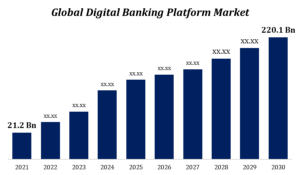Demystifying Fintech: Understanding the Basics and Key Concepts
Financial technology, commonly known as fintech, has rapidly emerged as a disruptive force in the financial industry. Fintech innovations are reshaping how financial services are delivered, accessed, and experienced by individuals and businesses worldwide. In this blog, we aim to demystify fintech by providing an overview of its basics and key concepts, shedding light on its transformative potential and the implications it has on the future of finance.
Defining Fintech:
Fintech refers to the use of technology to improve and automate financial services, encompassing a wide range of products, services, and business models. It combines elements of finance and technology to revolutionize traditional financial processes, enhance accessibility, and deliver innovative solutions in areas such as banking, payments, lending, wealth management, insurance, and more.
Key Concepts in Fintech:
- Digital Payments and Mobile Wallets: One of the most prominent areas within fintech is digital payments. With the rise of mobile devices and the increasing acceptance of contactless transactions, mobile wallets, and payment apps have gained popularity. These solutions enable individuals to make secure and convenient transactions using their smartphones, reducing the reliance on physical cash or traditional banking methods.
- Peer-to-Peer (P2P) Lending: P2P lending platforms connect borrowers directly with lenders, bypassing traditional financial intermediaries like banks. These platforms leverage technology to facilitate lending transactions, allowing individuals and businesses to access funding more efficiently. P2P lending offers an alternative to traditional lending channels and can provide borrowers with better rates and terms while offering investors opportunities for potentially higher returns.
- Robo-Advisory and Wealth Management: Robo-advisory services leverage algorithms and automation to provide personalized investment advice and portfolio management. These digital platforms analyze user data, risk preferences, and financial goals to offer tailored investment strategies at a fraction of the cost typically associated with human advisors. Robo-advisory has made investment advice and wealth management more accessible, especially to retail investors.
- Blockchain and Cryptocurrencies: Blockchain technology, a decentralized and transparent digital ledger, has gained attention for its potential to revolutionize various aspects of finance. Cryptocurrencies, such as Bitcoin and Ethereum, operate on blockchain networks and offer alternative digital currencies with potential benefits like fast and secure transactions, reduced fees, and increased transparency. Blockchain technology has also sparked interest in its potential applications beyond cryptocurrencies, such as smart contracts and supply chain management.
- RegTech and Compliance Solutions: Regulatory Technology, or RegTech, utilizes technology to streamline and automate compliance processes in the financial industry. RegTech solutions help financial institutions meet regulatory requirements, monitor transactions for suspicious activities, and enhance risk management. These technologies aim to simplify compliance tasks, reduce costs, and improve efficiency, ensuring adherence to complex regulatory frameworks.
Implications and Future of Fintech:
Fintech is reshaping the financial industry by challenging traditional models, enhancing customer experiences, and driving innovation. The adoption of fintech solutions offers numerous benefits, including increased convenience, improved access to financial services, reduced costs, enhanced security, and greater transparency. Fintech also promotes financial inclusion by extending services to underserved populations and emerging markets.
Looking ahead, the future of fintech is poised for continued growth and disruption. Advances in technologies like artificial intelligence, machine learning, big data analytics, and the Internet of Things (IoT) will further transform the industry. Collaborations between traditional financial institutions and fintech startups will accelerate innovation, while regulatory frameworks adapt to support the evolving fintech landscape.
Fintech is revolutionizing the financial industry, introducing new ways of accessing and experiencing financial services. From digital payments to blockchain and robo-advisory, the concepts within fintech are reshaping traditional finance, enhancing efficiency, and improving the customer experience. Understanding the basics of fintech and its key concepts is essential in navigating the evolving landscape of finance and unlocking the opportunities it presents. As technology continues to advance, fintech will undoubtedly continue to disrupt and redefine the way we interact with financial services.


































